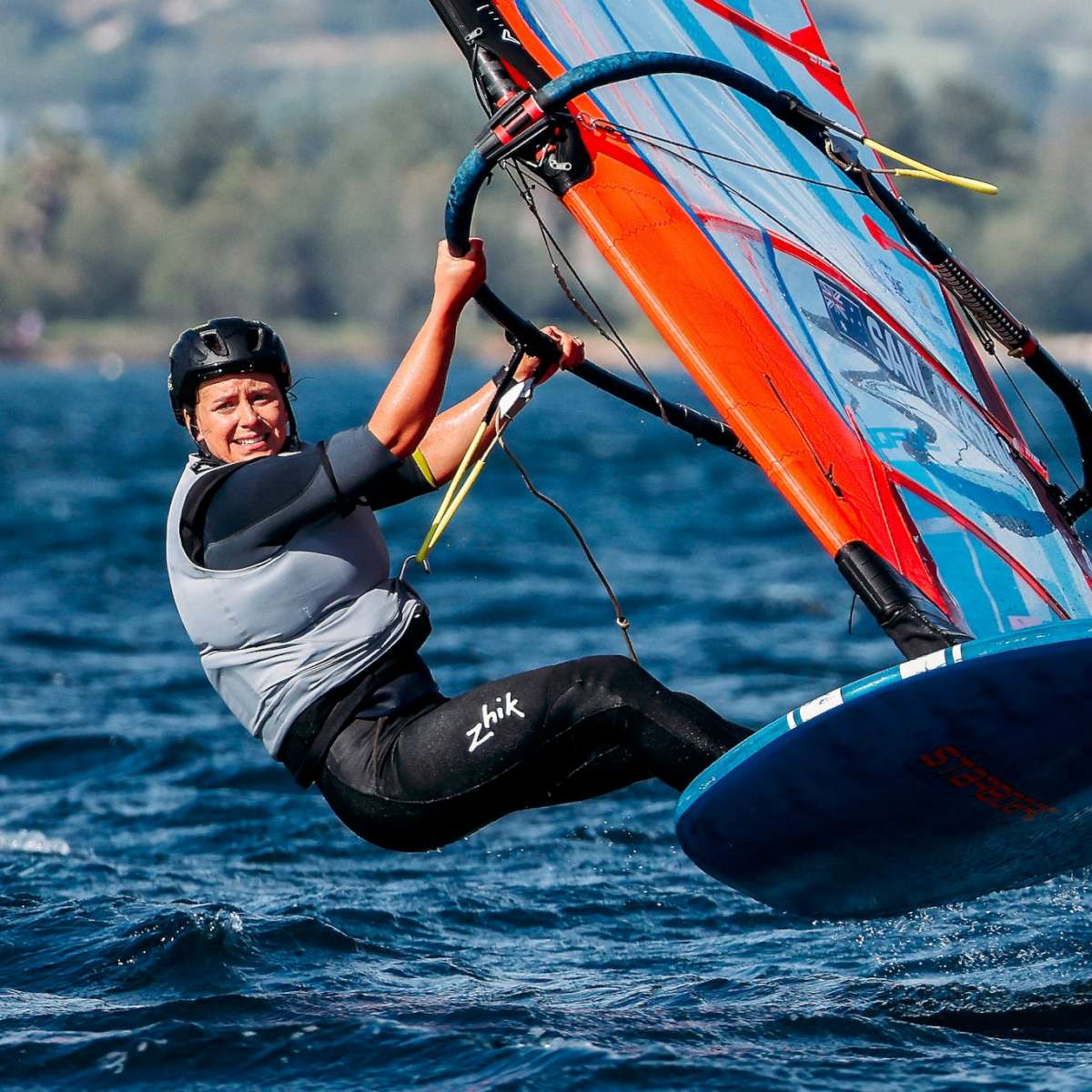When he crossed the finish line at 18:13:55 TU/19:13:55 CET / 14:13:55 hrs local this Thursday 13th November Erwan Le Roux (FenetreA-Cardinal) won the Multi50 class of the 10th edition of La Route du Rhum-Destination Guadeloupe. The solo skipper completed the 3,542 miles theoretical course in 11 days 5 hours 13 minutes and 55 seconds at an average speed of 13.16kts. In terms of actual miles on the water, Le Roux sailed 4,071miles for an average speed of 15.12knots. Le Roux sets a new course record, beating the 2006 course record of his former co-skipper Franck-Yves Escoffier by 12 hours and 15 minutes.
Erwan Le Roux enjoyed a great duel with his nearest adversary Lalou Roucayrol who finished runner-up in the last edition in 2010. Although they were close for most of the first half of the race, Erwan Le Roux finished with an advance of over 100 miles.
He completes a rare Transatlantic double, adding solo success in this La Route du Rhum-Destination Guadeloupe to double-handed victory one year ago when he triumphed in the Transat Jacques Vabre with Yann Elies into Itajai, Brazil. On his way to this keynote victory Erwan Le Roux has shown a solid mastery of all the vital variables required to win, meteorology, strategy, sleep, manouvres, strength and stress management.
After finishing 6th in the 2010 edition of this race, this is Le Roux's biggest solo success.
Le Roux is as talented as he is pugnacious and determined. He started from Saint-Malo determined to add to last year's success. The Breton skipper from Auray has now won most of the major events since he purchased the boat in 2011. Built in 2009 as Crepes Whaou 3 to the VPLP design, Le Roux actually won the 2009 Transat Jacques Vabre on the boat when it was new, as co-skipper to owner-skipper Franck-Yves Escoffier.
Le Roux, 40, has grown in experience and stature in recent years. He served his time in the ORMA class at the shoulders of Marc Guillemot, Loïc Peyron, Thierry Dupré, Daniel Souben, and in the Multi 50 along with Franck-Yves Escoffier. He also had earlier success in monohulls previously, twice winning the Tour de France a la Voile, also racing successfully in Classe40 and the Mini 650.
He fought a tough, close game, head-to-head off the tip of Brittany with Yves Le Blevec (Actual) and Lalou Roucayrol (Arkema-Region Aquitaine). Loic Fequet (Maitre Jacques) was very quickly eliminated from the action after damaging a float on the first night.
The first part of Biscay was a classic chess board with Roucayrol hunting offshore out in the west. Yves Le Blevec lead early on, on Actual. He fell away after having to make a double pit-stop to repair his wind instruments. The early profit, being closer to the rhumb line was to Roucayrol. Le Roux went inside the TSS at Finisterre and after duelling since Finisterre with Roucayrol, he took the lead on the night of 6th November and has never been challenges.
Lalou Roucayrol's newer 2013 launch Neyhousser/Verdier/Muyl design is faster downwind and the battle between the two went on for nearly 2000 miles until Erwan Le Roux eases progressively further ahead, opening up to 100 miles in the fina 48 hours to record a well earned victory into Guadeloupe.
In the IMOCA Class Francois Gabart retains a lead of 96 miles over Jeremie Beyou and should finish into Guadeloupe Friday early afternoon. Spain's Alex Pella is now 62 miles ahead of Kito de Pavant in the lead of Classe40. Britain's only past winner of the Class 40 fleet Phil Sharp commented today: “It is of absolutely no surprise for me to see Alex Pella, Kito de Pavant lead the current charge downwind into the second half of this race, and also to see Yannick Bestaven right up there in his brand spankingly new Verdier designed. Interesting to see F18 sailor Thibault Vauchel-Camus right in the mix, proving his offshore capabilities of which I’m sure his new Mach 40 won’t be letting him down in the slightest. But great sailing from him. Then a bit further behind it is fun watching Giancarlo Pedote, on the numbers, scything his way through the fleet after an early pit-stop.
The conditions the fleet have lately been facing sound very challenging with a lot of squalls through the nights which make the sailing stressful and sleeping very difficult, particularly with all the wind shifts and the need to keep gybing and sail changing to maximise VMG. The performance we are seeing at the moment is much less down to the boat and much more down to outright tactics, sail setup and boat handling. In my view I think the conditions will continue to be quite unstable for the next couple of days and then as the front-runners near the West Indies the trades should fill in as the centre of the high switches further North. Next week those towards the back of the fleet are going to be having some seriously fast downwind sailing in 25-30 knots to make up for their current slow progress!”






















